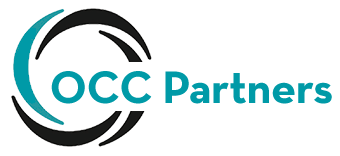#1 Tip to Be Successful–Overcome Average
Success – We all define it differently. For some it’s about making a lot of money, for others it’s about getting to the top of a company, and for others it’s about health and/or lifestyle. But, in the end, success is success, and it will always run up against the same problem – AVERAGE.
What do we mean by that? Average is always out there judging you and what you’re doing. Whether average comes in criticism from others, critical looks, or your very own head. Don’t listen, don’t accept, and get rid of it in your own thinking, and who you’re listening to. We mean refuse to accept average, in yourself, and in those around you.
Sound simple? It’s not. It can be one of the most difficult challenges you ever take on.
 Here’s a fundamental example and it starts early in our lives…When you were in middle school or high school and friends wanted you to hang out, rather than study for a test, or practice your sport, pursue your music, what happened? They applied pressure. They coaxed, they prodded, and sometimes they deserted you. Or what happens if you aced tests all the time, were a top student, became the captain of a team, or got were becoming an accomplished musician? Some of your friends and peers mocked you because you were unavailable, busy going after your own plan. Your success does NOT come unconditionally. It comes with a price. It can be lonely at first to not settling for average. But by focusing on your goals and understanding that… in the end, your own self, and those you love will be better for it, and you will realize you can do it.
Here’s a fundamental example and it starts early in our lives…When you were in middle school or high school and friends wanted you to hang out, rather than study for a test, or practice your sport, pursue your music, what happened? They applied pressure. They coaxed, they prodded, and sometimes they deserted you. Or what happens if you aced tests all the time, were a top student, became the captain of a team, or got were becoming an accomplished musician? Some of your friends and peers mocked you because you were unavailable, busy going after your own plan. Your success does NOT come unconditionally. It comes with a price. It can be lonely at first to not settling for average. But by focusing on your goals and understanding that… in the end, your own self, and those you love will be better for it, and you will realize you can do it.
And, achieving success takes hard work, and most of us don’t want to do that, because it’s easier not to. Hard work, day after day, hour after hour, often when you don’t feel like it. The problem with not consistently pursuing your goals, we never realize our dreams.
Let’s face it, we’re all among that group, in one way or another, at times. There is NOT an area of our life where we succeed in everything. It may look like someone else does, but they don’t! So, stop dwelling on it. Just do what you want and want to succeed at, accept that you cannot do it all and won’t be successful in everything, career, money, fitness, nutrition, beauty, and/or relationships. There will be sacrifices and some areas of success you’ll never have. The question is, where do you really want success, because you don’t know and will never know if you don’t achieve it. So, you might as well go after your goal, with a vengeance, when it’s important to you, and overcome ‘average’.
 Average comes in all shapes and forms and attacks you in ‘so’ many ways it’s challenging to overcome. It’s there in your head, in your friends, even in your family. No one means to send you ‘average’ intentions, but they often do. Because average is what most people are. And to compensate for that, we find flaws in those who are successful.
Average comes in all shapes and forms and attacks you in ‘so’ many ways it’s challenging to overcome. It’s there in your head, in your friends, even in your family. No one means to send you ‘average’ intentions, but they often do. Because average is what most people are. And to compensate for that, we find flaws in those who are successful.
So, how do you overcome listening, thinking, and believing you’re not ‘average’? You become alert to it, and every time it roars its ugly head, you SHUT IT DOWN!
People, whether your friends, family, or strangers, will discourage you. Its only rarely that everyone agrees with you or what you’re doing. And there will be those who doubt you along the way.
- Start by believing in yourself and repeating positive messages to yourself frequently until they become your strongest message to yourself and rarely think otherwise. Whether it’s post-it notes, or inspirational messages, or on your home screen, tell yourself you are on the right road…all the time. And, when negative thoughts or doubt creep in, SHUT THEM DOWN FAST!
- Stay positive and be confident. Even if you’re not! None of us are, all the time, but fake it. ‘Fake it till you make it!’ Pretend confidence and eventually you will be confident. Eventually you’ll believe it and BE it.
- When others doubt you, listen and learn when appropriate, but never, ever doubt yourself. You may want to alter your mindset or direction, but you need to be cautious of doubters and move on.
- You will fail, sometime. Everyone does, but don’t dwell on it. If need be, look at it, analyze it quickly, learn from it, and move on. If you determine you need more guidance, direction, or to learn a new skill for your toolbox, get busy.
- Build alliances with those people that support you and believe in you. Move closer to those who aid and facilitate what you’re working toward, and limit exposure to those who don’t.
- Be cautious when you share your plan, because when you do, the brain interprets words for actions and you’re less likely to then achieve it. For more on this watch Derek Sivers in his TED Talk named, Keep Your Goals to Yourself.
- And, always, be grateful to those that supported you and support them in kind.








 It all starts when the recruiter reaches out to you about your availability for a phone interview. When they do, and they will, offer a couple blocks of time, not just one. If you only offer one time, it often requires multiple back and forth emails that delay your interviewing. Also, consider that the person interviewing you may not be in the same area code, so provide availability that would accommodate multiple parts of the country. Many companies may have an office in your city, but their recruitment may be in another or a different state. Even if you know where the home office is, the recruiter could be somewhere else. Again, suggest multiple blocks of time you’re available that could be accommodate east coast and west coast callers if needed. And, include the phone number that you can be reached with your area code. Plain and simple, doing these two simple tasks can speed up the entire process for you.
It all starts when the recruiter reaches out to you about your availability for a phone interview. When they do, and they will, offer a couple blocks of time, not just one. If you only offer one time, it often requires multiple back and forth emails that delay your interviewing. Also, consider that the person interviewing you may not be in the same area code, so provide availability that would accommodate multiple parts of the country. Many companies may have an office in your city, but their recruitment may be in another or a different state. Even if you know where the home office is, the recruiter could be somewhere else. Again, suggest multiple blocks of time you’re available that could be accommodate east coast and west coast callers if needed. And, include the phone number that you can be reached with your area code. Plain and simple, doing these two simple tasks can speed up the entire process for you. Dress comfortably, wear whatever inspires you to have your best conversations, so wear whatever you can be comfortably relaxed in.
Dress comfortably, wear whatever inspires you to have your best conversations, so wear whatever you can be comfortably relaxed in. After you’ve answered a question, a great suggestion is to ask the interviewer if you’ve answered their question. It’s a great opportunity for them to bring up something that may need clarification. And, while the interview is your time to highlight yourself, don’t dominate the conversation, wait for the interviewer to ask questions. And then respond to the question and be as specific as you can. With that said, it’s also your time to get some of your questions answered, and you can ask right in the beginning or at the end, if you can ask a few questions if the interviewer hasn’t brought it up.
After you’ve answered a question, a great suggestion is to ask the interviewer if you’ve answered their question. It’s a great opportunity for them to bring up something that may need clarification. And, while the interview is your time to highlight yourself, don’t dominate the conversation, wait for the interviewer to ask questions. And then respond to the question and be as specific as you can. With that said, it’s also your time to get some of your questions answered, and you can ask right in the beginning or at the end, if you can ask a few questions if the interviewer hasn’t brought it up.
 There’s a solution to make your interviewing more comfortable and successful. The solution is practice. Interviewing is a skill you can learn. Yes, it’s a skill that’s learned. Very few people do it well without practice, like any skill. So, I’ll provide some simple tips and then it’s up to you to practice. With the right tips and practice, you can become comfortable sharing your background and strengths with potential employers, making a good impression, getting your questions answered and ultimately landing your dream job. And, in the end you might even say you enjoy interviewing.
There’s a solution to make your interviewing more comfortable and successful. The solution is practice. Interviewing is a skill you can learn. Yes, it’s a skill that’s learned. Very few people do it well without practice, like any skill. So, I’ll provide some simple tips and then it’s up to you to practice. With the right tips and practice, you can become comfortable sharing your background and strengths with potential employers, making a good impression, getting your questions answered and ultimately landing your dream job. And, in the end you might even say you enjoy interviewing. As you respond to questions, remember to provide candid, upbeat answers. And be thorough. Even when asked about weaknesses or failures, these are opportunities to tell the interviewer what you’ve learned and are learning from those experiences. It also establishes that you don’t make a mistake over and over, but are a continuous learner. Everyone makes mistakes, everyone has failures, but successful individuals learn from them. Show how you have.
As you respond to questions, remember to provide candid, upbeat answers. And be thorough. Even when asked about weaknesses or failures, these are opportunities to tell the interviewer what you’ve learned and are learning from those experiences. It also establishes that you don’t make a mistake over and over, but are a continuous learner. Everyone makes mistakes, everyone has failures, but successful individuals learn from them. Show how you have. Last, send a thank you. It’s no longer required or even necessary to send a formal written letter. Today’s business is moving too fast and a decision about you will often likely be made in a day or two, so the best ‘thank you’ is often an email, sent within 24 hours of the interview. That means before you leave the interview you should get the interviewer’s business card, or at least their e-mail address. Most interviewers appreciate the ask, especially when you tell them why you’re asking for that information, and if they won’t reveal it, sending a thank you email to HR or the recruiter and asking them to forward the email is a good alternative. Even interviewers who don’t give you their email appreciate a forwarded thank you for HR. I’ve seen it multiple times where a forwarded thank you to the hiring manager helped the manager ultimately decide between two promising candidates. The one that sent a thoughtful, but brief thank-you got the offer.
Last, send a thank you. It’s no longer required or even necessary to send a formal written letter. Today’s business is moving too fast and a decision about you will often likely be made in a day or two, so the best ‘thank you’ is often an email, sent within 24 hours of the interview. That means before you leave the interview you should get the interviewer’s business card, or at least their e-mail address. Most interviewers appreciate the ask, especially when you tell them why you’re asking for that information, and if they won’t reveal it, sending a thank you email to HR or the recruiter and asking them to forward the email is a good alternative. Even interviewers who don’t give you their email appreciate a forwarded thank you for HR. I’ve seen it multiple times where a forwarded thank you to the hiring manager helped the manager ultimately decide between two promising candidates. The one that sent a thoughtful, but brief thank-you got the offer.

 If you’re a fresh graduate, it’s time to tell people! List the degree in all caps and FIRST, then the college name. With the degree first, the reader sees immediately you have a Bachelor’s degree/Master’s degree. If you took interesting and relevant classes, or classes that show you are a strategic thinker, analytical, or creative, then include those. For two reasons, one is sometimes it can show a more creative personality or more analytical, or even skills in a specific area, like Accounting/Finance, or a Digital Marketing class, which they’d never know, unless you’ve put it on your resume. The second reason is sometimes in an interview, the interviewer sees a class that’s interesting and asks you about it…and this is a good time to ‘break the ice’ and show your interest or knowledge.
If you’re a fresh graduate, it’s time to tell people! List the degree in all caps and FIRST, then the college name. With the degree first, the reader sees immediately you have a Bachelor’s degree/Master’s degree. If you took interesting and relevant classes, or classes that show you are a strategic thinker, analytical, or creative, then include those. For two reasons, one is sometimes it can show a more creative personality or more analytical, or even skills in a specific area, like Accounting/Finance, or a Digital Marketing class, which they’d never know, unless you’ve put it on your resume. The second reason is sometimes in an interview, the interviewer sees a class that’s interesting and asks you about it…and this is a good time to ‘break the ice’ and show your interest or knowledge. Most recent first! Never, ever, start the with your oldest position because the typical reader spends less than 30 seconds reading your resume, and may never spend the time on yours to see you’ve changed the order.
Most recent first! Never, ever, start the with your oldest position because the typical reader spends less than 30 seconds reading your resume, and may never spend the time on yours to see you’ve changed the order. Think it’s unimportant? Well consider this, most people hire people they like, and the quickest way to connect with an interviewer is if there’s a common interest, or an interesting detail to ask you about. Then, if it comes up, and often it will, you’ve created an opportunity to kick-off your first meeting on a great start. Note, political and religious affiliations are highly discouraged because they could be misinterpreted.
Think it’s unimportant? Well consider this, most people hire people they like, and the quickest way to connect with an interviewer is if there’s a common interest, or an interesting detail to ask you about. Then, if it comes up, and often it will, you’ve created an opportunity to kick-off your first meeting on a great start. Note, political and religious affiliations are highly discouraged because they could be misinterpreted.